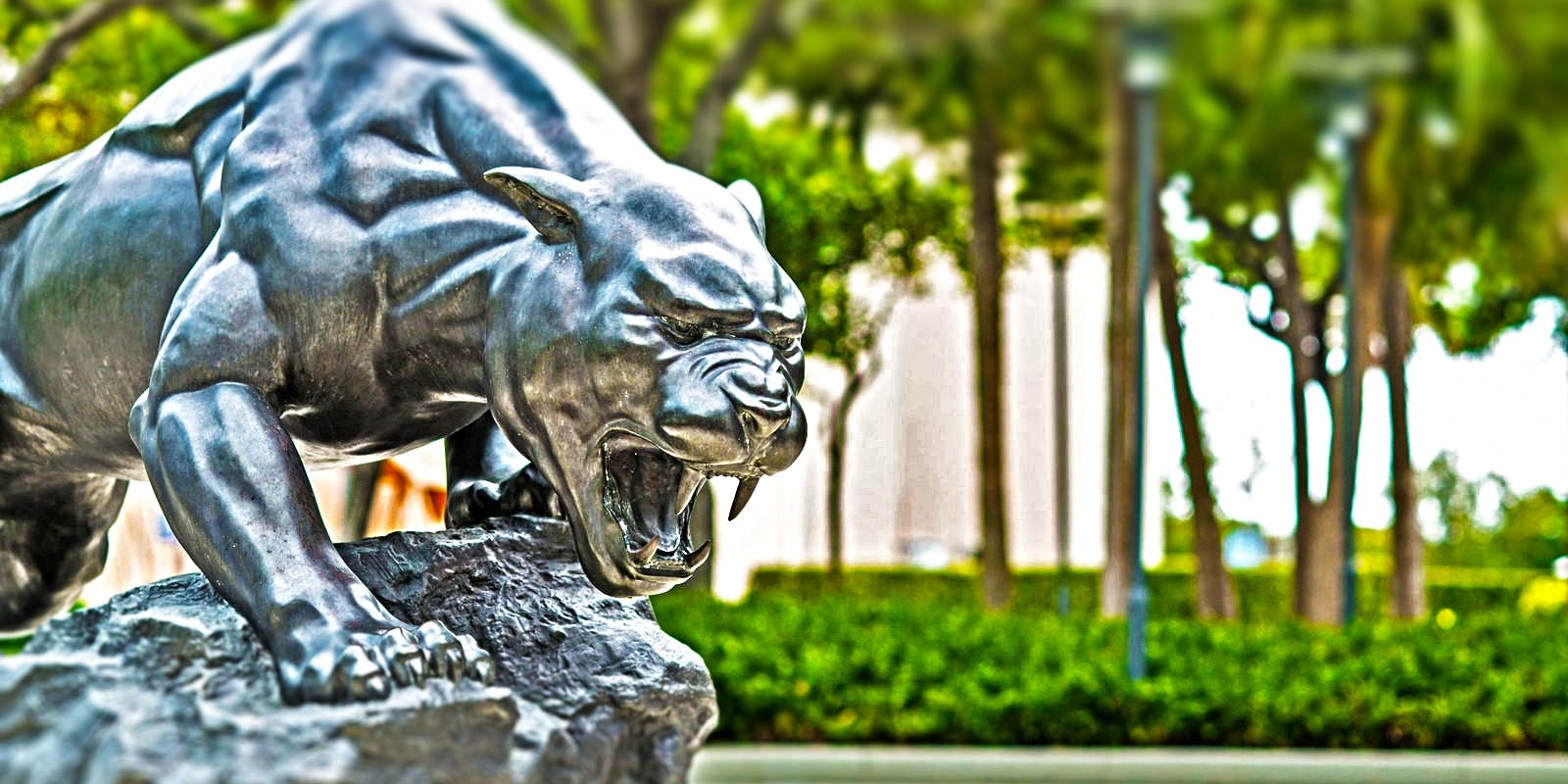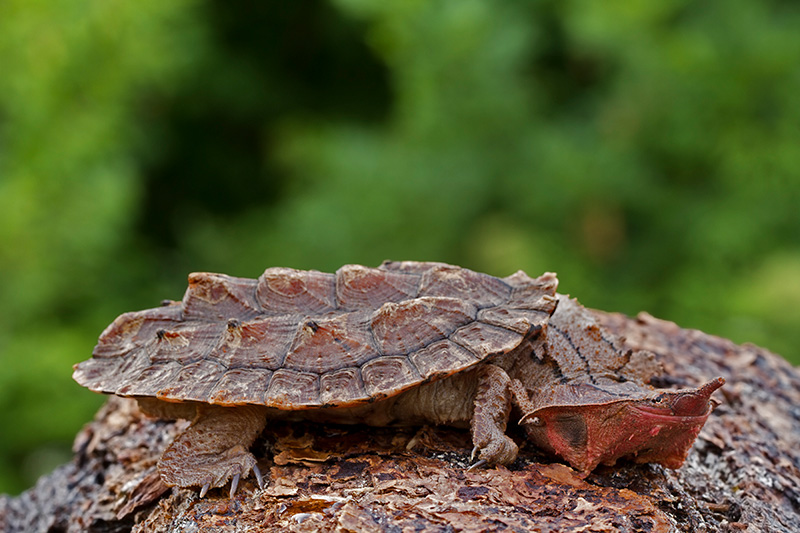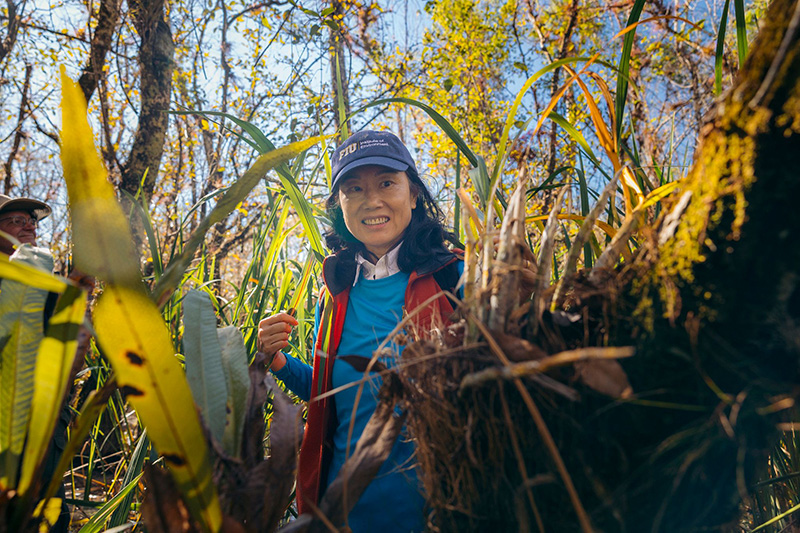Target 15.7 End poaching and trafficking
By 2030, increase the economic benefits to Small Island developing States and least developed countries from the sustainable use of marine resources, including through sustainable management of fisheries, aquaculture and tourism

Wildlife Trafficking Intervention Program
The illegal trafficking of wildlife and overexploitation of plant and animal species represent a major threat to biodiversity. Our scientists are actively involved in the Convention on International Trade in Endangered Species of Wild Fauna and Flora, supporting efforts to protect species through science and advocacy. FIU’s Tropical Conservation Institute and Global Forensic and Justice Center have also partnered to develop new detection methods and intervention strategies to disrupt the illegal pet trade, trafficking of endangered species, and the market for endangered animal parts. To date, our researchers have developed rapid, in-field DNA detection kits that can be used at ports of entry to identify illegally trafficked species and to also identify their points of origin. We are providing this information to government officials for investigating and prosecution of traffickers.

Pangolins, the World's Most Trafficked Mammal
FIU is leading Operation Pangolin, an international collaboration to save the world’s most trafficked wild mammal. These evolutionarily distinct and globally endangered mammals are in dire need of urgent conservation action. Yet, scientists and policymakers lack sophisticated understanding about the pangolin scale and meat trafficking supply chains, which move an estimated 250,000 pangolins a year out of African and Asian forests to consumers in China, Vietnam, and even western Europe and the United States. The collateral impacts of trafficking on socio-environmental health compound the already significant species conservation ramifications and put the global human community at risk. Pangolin range states and conservation governing bodies including CITES and IUCN have declared that developing pangolin-specific monitoring methods linked to anti-trafficking efforts is the highest conservation priority for pangolins. The knowledge and data gaps have prevented the design of robust monitoring and management programs for wild pangolin populations and interventions for combating wildlife crime. Operation Pangolin capitalizes on the latest advances in technology machine-learning, big data, and interdisciplinary team science to develop cost-effective solutions to the global pangolin crisis.

Primates
Deforestation and poaching are plaguing the world’s primate populations and the pet trade is a particular problem for some of the world’s smallest monkeys. Our captive-breeding and management efforts are part of a broad conservation network that helps ensure a future for tamarins and pygmy marmosets. FIU research scientists have participated in the international Lion Tamarin Conservation Program for more than 25 years. This program works closely with agencies in Brazil to protect wild populations and expand protected areas. Our efforts in small primate conservation also benefit the pygmy marmoset, a monkey so small it fits in the palm of a human hand. The Rare Species Conservatory Foundation, a partner of FIU’s Tropical Conversation Institute, is led by FIU scientists and maintains North America’s largest pygmy marmoset colony.

Matamata Turtles
Using a rapid DNA testing toolkit developed by FIU researchers, Colombian officials recently stopped an illegal shipment of 2,200 Matamata turtles and returned them to the Orinoco river basin. A team of Colombian scientists and authorities at the International Airport Alfredo Vásquez Cobo in Leticia first identified the suspicious shipment of freshwater baby turtles. Matamata turtles are native to South America and are most recognizable by their rough, knobby shell and snorkel-like snout. It is illegal to trade Matamata turtles in Colombia, where they are currently listed as a near threatened species. But each year, thousands of these bizarre-looking animals end up in the hands of traffickers and end up in foreign pet markets where they can be legally sold, sometimes costing upwards of $300. When the shipment of bizarre-looking turtles turned up in Leticia, customs officials knew immediately they were looking at a protected species. What they didn’t know is what species of Matamata they were looking at. Originally thought to be a single species, a recent discovery revealed there are actually two genetically distinct species of Matamata turtles. Virtually identical in appearance, one species exclusively resides in the Orinoco river basin and the other in the Amazon River basin. Quick identification is important so recovered turtles can be returned to their correct river basin. Introducing an Orinoco turtle to the Amazon River basin — or vice versa — could have negative effects that would ripple throughout that entire native turtle population, affecting evolutionary processes and genetic health. In the past, customs officials would transport a few confiscated turtles to a lab for DNA testing. While they would wait for results, they were also trying to keep thousands of turtles alive. This time, they decided to give the FIU DNA toolkit a try. Originally developed to identify endangered species in the shark fin trade, the toolkit can be used to identify any animal or animal part being trafficked through international ports. Colombian officials were able to determine the correct species of Matamata turtle on-site in less than two hours and then transport them to their correct river basin, giving them the best chance of survival. The cost for the test is about $1 per sample.

Orchids
The demand for orchids could be driving wild orchids to extinction in southern China. Our researchers are trying to reverse this trend. They led the first-ever study of the wild orchid trade in southern China, and found illegal activity is more widespread than originally believed. It’s also reaching into other countries. Many species found in the markets weren’t native, but from neighboring countries including Laos, Burma and Vietnam. Currently, the wild orchid trade in China is unregulated. While all 29,000 orchid species are listed by CITES, only animals listed on that register are automatically protected under Chinese law. This has created a policy gap that can only be closed with concrete evidence. This study sounded the alarm, providing officials with the information to inform policy changes.